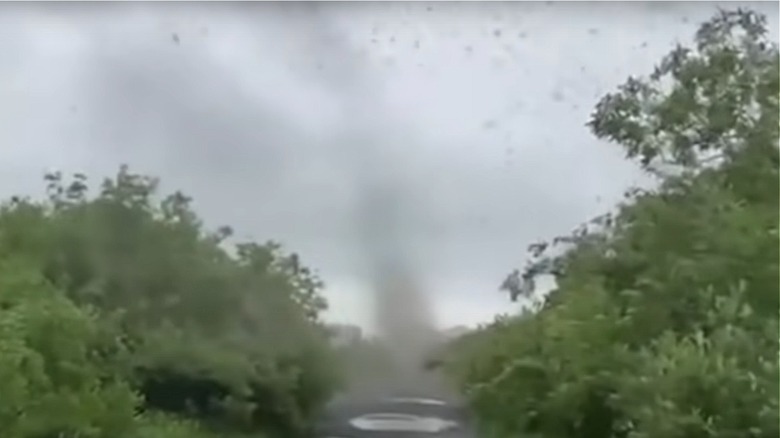Russia's Mosquito Tornado Underscores Climate Change's Dramatic Impact
A newly published video shows a swarm of mosquitoes form into a literal cyclone of buzzing chaos as they terrorize a remote eastern Russian village. Though dramatic in its visual nature and beyond annoying, the mosquitoes weren't actually a danger to nearby people. Instead, the insects were worked up into a massive mating frenzy spurred, in part, by climate change.
The dramatic event took place in Russia's Kamchatka Peninsula, a primarily mountainous region where people live remote lives away from louder, more densely populated cities. The region's remote nature wasn't enough to prevent videos of its 'mosquito tornado' from hitting the Internet, however, and the imagery is shocking.
The 'tornado,' which was composed entirely of male mosquitoes looking for mates, was large enough to blot out the sun at times. Videos show the insects forming an actual twisting cyclone at times, one you may mistake for a dust devil it wasn't for the thousands of buzzing insects surrounding it.
'These are male mosquitoes swarming around one of several females in order to mate, there is nothing wrong about this phenomenon', entomologist ⁰Lyudmila Lobkova from @kronoki reserve told Kamchatka Inform on the recent sighting of mosquito 'tornadoes' at the Kamchatka peninsula pic.twitter.com/aKeDi8LFlM
— The Siberian Times (@siberian_times) July 18, 2021
The mosquito cyclones are disturbing to behold, though swarming insects aren't anything new and aren't in and of themselves anything to be worried about. However, there is a concern related to climate change and the role it plays in swarms like this, potentially making them bigger and more common in the future.
It's no secret that a rainy spring season will lead to more bothersome summer mosquito problems — and, well, there has been a lot of rainfall around the world in recent weeks. Floods weren't the only consequence of the dramatic storms, which also provided the right environment for mosquito breeding at a mass scale. And climate change is expected to bring more long-duration, heavy rainstorms to many regions around the world in coming years.
Climate change is driving atypically warm temperatures in the typically frigid Siberian region of Russia, as well. The warm and, at times, hot temperatures in this region have caused permafrost to thaw, threatening the local ecosystem. Thawing permafrost releases considerable amounts of methane and carbon dioxide, which enter the atmosphere, ultimately contributing to the problem.
Insect swarms may become more common and problematic as the Earth warms up, changing the environments that control insect activity and seasons. Human activity is cited as the primary factor driving the rising temperatures on Earth, making this video yet another example of the possible consequences of uncontrolled climate change.
